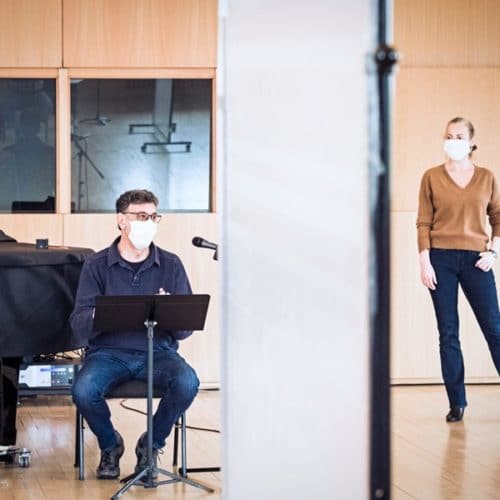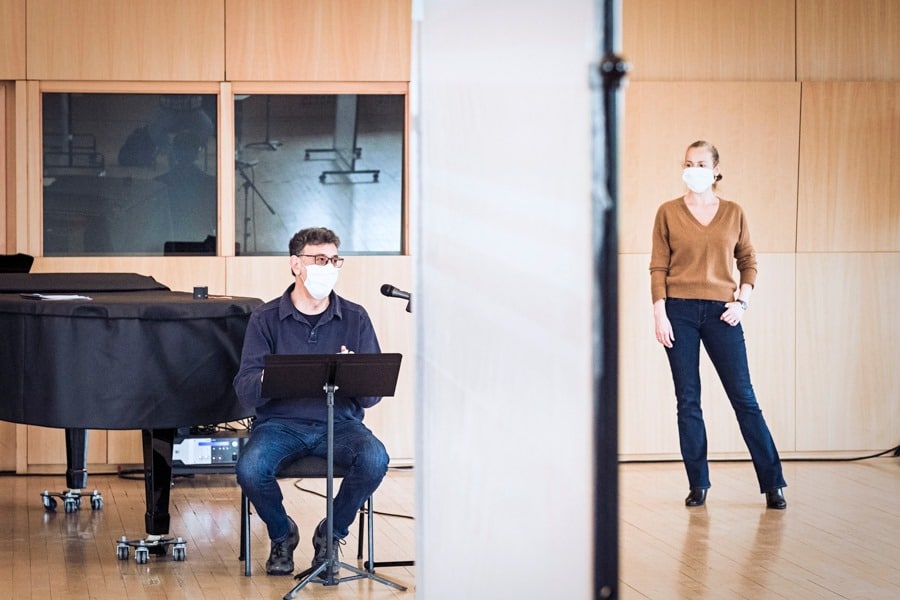New rules: How to attend a concert during Covid
mainPatrons of the Bavarian Radio Symphony Orchestra have been issued with this set of rules:
We are very pleased to welcome you again on October 8th and 9th in the Herkulessaal of the Residenz. So that you can enjoy the concert despite the current circumstances, we are sending you the most important information about your visit.
1. Service
Please understand that, due to the hygiene requirements, we are unable to offer any catering, introductory events, box office or printed programs. The cloakroom is open as usual.
2. Information about the program
The choice is yours: you will find information on the works performed and the participants in a short program sheet and in a detailed digital program booklet.
3. Entering the hall
Please note the new admission time… 30 minutes before the start of the concert.
4. Seats
You will be given assigned seats that you must adhere to due to the distance regulations. We will be happy to help you find your seat on site. If you have to walk past someone while finding your seat, please do so back to back.
5. ID card
Your tickets are personalized. Please have your ID card ready at the entrance.
6. Minimum distance
The minimum distance of 1.5 m must be observed during the entire visit.
7. Health comes first!
You are responsible for your own health – if you feel sick, you cannot attend our concerts.
8. Hand washing
Please remember to wash your hands thoroughly with soap or use the disinfectant dispenser on site in the foyer.
9. Cough and sneeze
Please note the recommended cough etiquette: Cough or sneeze into the crook of your arm.
10. Mouth and nose covering
Please enter and leave the hall wearing a face and nose covering. This can be removed at the seat.
11. Ventilation of the hall
The requirements for the ventilation of the venue have been met.
12. Find out more
Please inform yourself proactively about the current regulations before attending the concert, these can change at short notice.
13. Transfer tickets
Tickets are transferable in exceptional cases … The relevant form and further information can be found here.
14. Late arrivals
Guests arriving late can, if necessary, be placed in the back rows at free spaces on the edge, provided the minimum distance is observed. If the compliance with the minimum distance is not guaranteed, because all of the peripheral seats are occupied, guests arriving late cannot be admitted to the event. In this case, too, there is no entitlement to reimbursement of the entrance fee.
15. Failure to comply with hygiene rules
People who cannot comply with the hygiene rules mentioned above are not allowed to attend the event. In this case, too, there is no entitlement to reimbursement of the entrance fee.

Well, that’s entertainment.






Comments